Trade Union Organizing in Tunisia: LiA Reflection Week 5 (July 21-25)
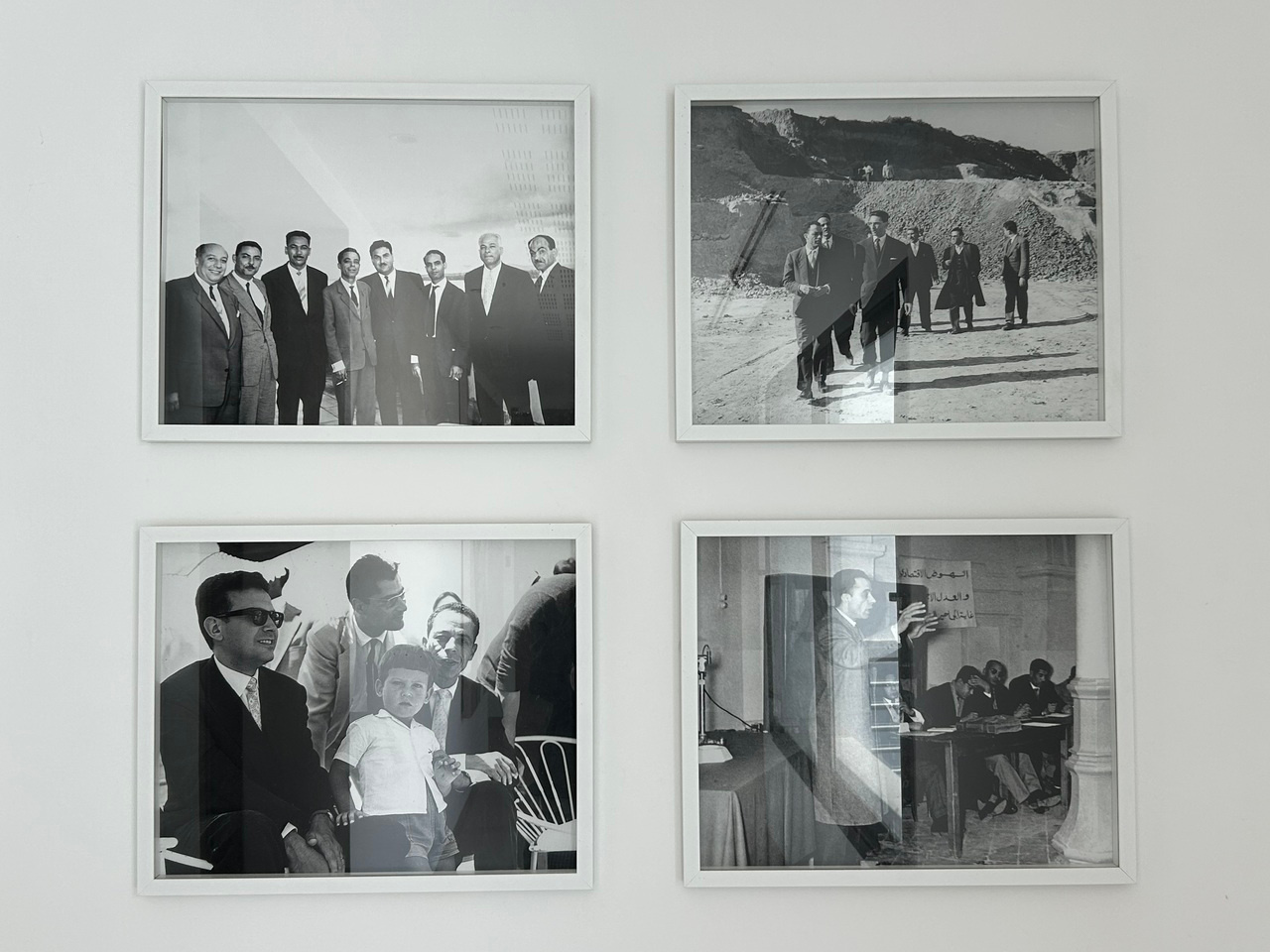
A shorter reflection for week five, because it was a shorter week & also because I’m a bit behind in my journals and have already begun my sixth and final week at the UGTT … but I digress! I didn’t go to work on Monday for several reasons; I had worked the Saturday prior so my wonderful supervisor said that I didn’t have to come to work, but I also was feeling a bit sick and the high was 107˚, so I was worried about walking the twenty or so minutes from the public taxi stop home.
It’s cooled down a bit since last week, but in my conversations with taxi drivers, my host grandmother, really everyone I talk to (as you can imagine, the heat is a very common conversational topic), Tunisia has not always had this level of heat during the summers. My host grandmother said that it has really only been the past few years that the heat has been so unbearable and that the effects of climate change have been so evident. But it truly impacts every aspect of life here. I didn’t have to work on Monday, but for taxi drivers (the majority of whom do not have AC in their cars), for people without homes, for people who collect trash or work in construction, for any elderly or immunocompromised person, life during the waking hours is truly unsupportable. The city comes out at night, but for the working people of this world, the summer can be deadly.
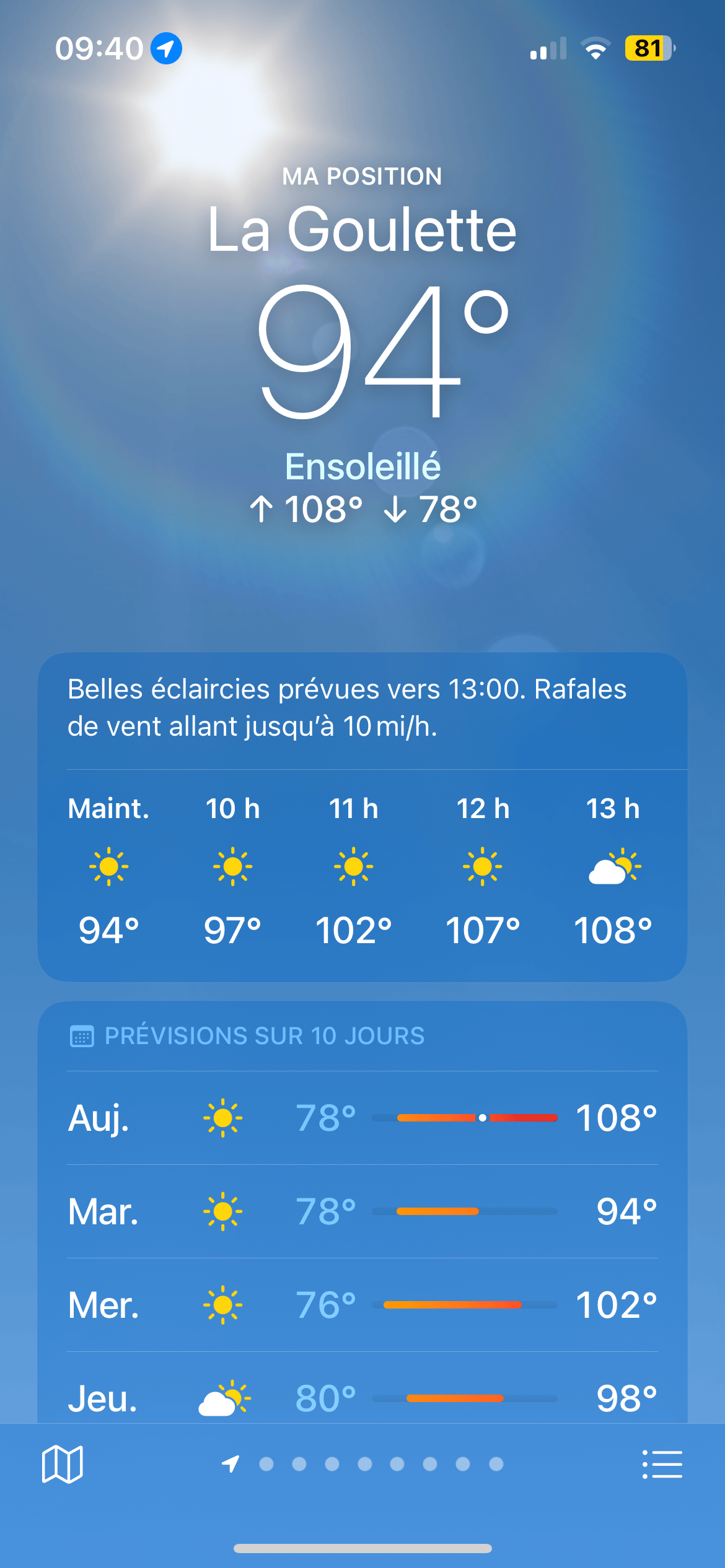
On Tuesday, I had the opportunity to sit in on a meeting with the leaders of the agricultural collective at Ben Arous in Tunisia. I’ve written a bit about the connections between my union and rural farmworkers before, but one of the most successful and most groundbreaking projects that the UGTT is working on currently is to support a group of worker-owned agricultural collectives just outside of the capital. A representative from a UGTT partner union in Italy was also at the meeting, a testament to truly how international the union is. The UGTT has partners all over the world, but their connections with the CCOO in Spain and the CGIL in Italy are especially strong, and in-person collaboration is prioritized whenever possible.
It was so amazing to have the chance to meet the president of the worker’s collective, a wonderful woman whom I have met before because the association (called Kounouz Ben Arous) often caters the events at the UGTT, and I also got to meet the leaders of the two other teams that have joined the association. The fruits of the labor, the products of their harvest, are sold under the solidarity brand. The UGTT has helped really solely with advertising, packaging, and the distribution of their products, but it is the women and the collectives themselves that do the labor and organization to make the brand possible. The Group for Agricultural Development of Ben Arous (GDA) was founded in 2015 as an initial team of solely women, and they have expanded significantly, going from just one association to three in ten years.
The goal of the GDA is to create a mutually beneficial community and to allow all of the workers of the collective to benefit directly from the food that they grow and the products that they make. At the core of the agricultural collective is the belief that people should be able to benefit from the fruits of their labor, and the support of the UGTT allows the GDA to distribute their products widely in Tunis through an online website. There are significant barriers to this kind of mutually beneficial, sustainable, worker-owned brand, namely a lack of monetary resources to widely sell their products, as so much money is needed to have the supplies, packaging, labeling, all of the things, necessary to appeal to the average Tunisian consumer, and to compete against companies that manufacture goods on an industrial scale, with no understanding as to the distinct steps of the production process.
I cannot express in words how much I am inspired by this project. I’m really unable to convey how amazing this kind of project is, but I think there is a very clear reason why agricultural collectives have been some of the most successful worker-owned cooperatives in the entire world. In the United States, for instance (though you might not think it, and I certainly didn’t at first!), there are a myriad of extremely successful worker-owned cooperatives.
I am still trying to figure this out, why agricultural workers are the most conscious of the labor process, through conversations with the women of the Ben Arous collective and my own personal historical knowledge of land enclosure and the rise of industrial capitalism. However, I really am convinced that the people who work directly with the earth are the ones most connected to both the natural environment and their own labor, and I am completely convinced that any sort of radical transformation in how we think about work and how we will respond effectively to the climate crisis will come from people like the women I got to be with on Tuesday.
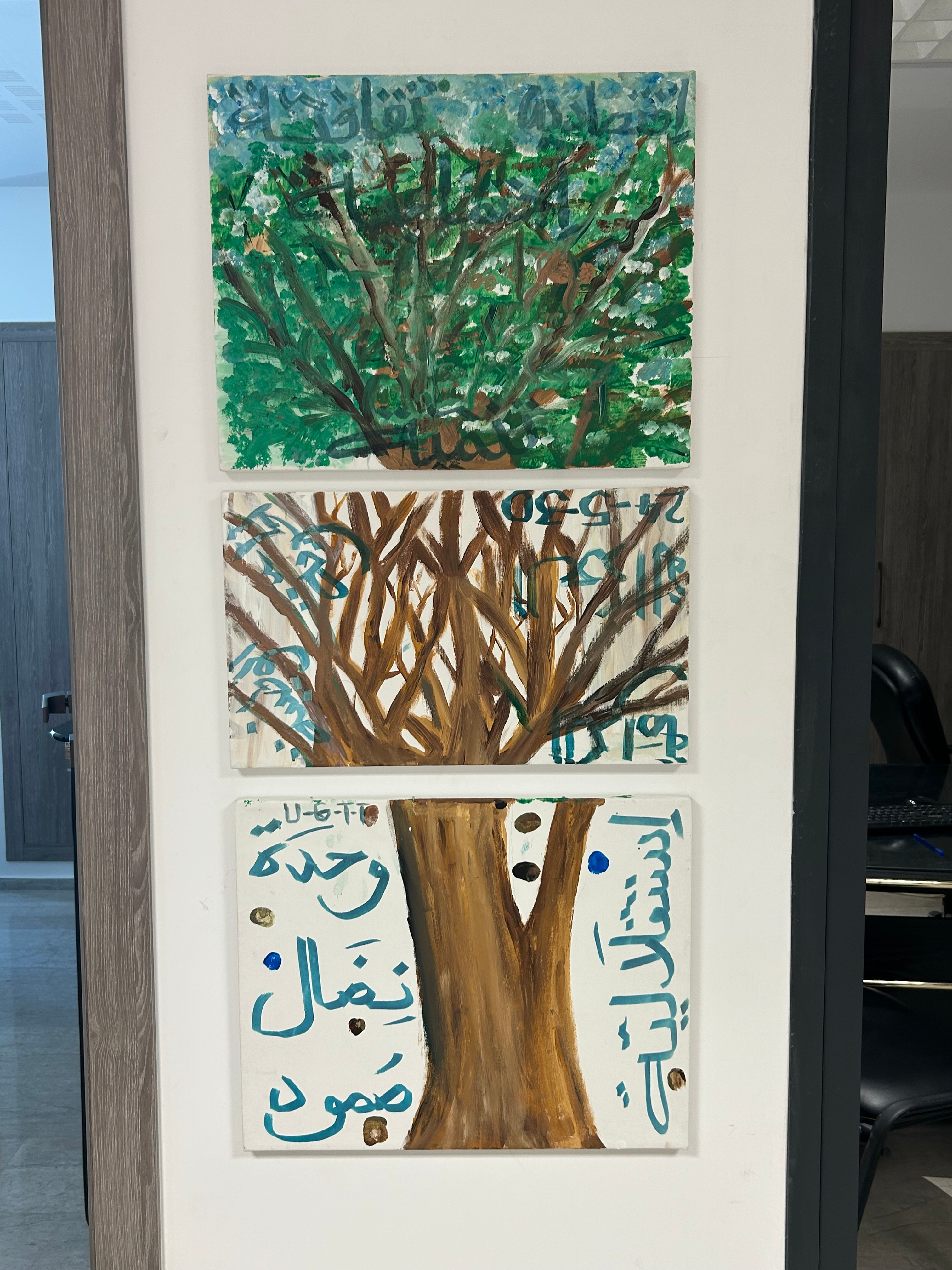
Wednesday was a super odd day because I attended a workshop on how to integrate new technologies into union organizing, hosted by the Building and Wood Workers’ International Union (BWI), the global union federation for those working in building, wood, forestry, and construction material industries. If you know me, you know that I am extremely, extremely opposed to artificial intelligence. I have spent the past year researching the unimaginable threat that AI poses to labor, human creativity, and the environment and my entire time in Laidlaw has been devoted to thinking about all that AI robs from our lives. One of the reasons I’m in Tunisia is, through my work at the UGTT, to research how trade unions are responding to labor elimination & displacement because of machine technology. So you can imagine my surprise when a trade union leader asked us all to download ChatGPT to our cell phones …
It was actually a really interesting day, just for challenging my own little bubble of thinking that AI is horrible, and that anyone of conscience — especially those involved in labor organizing — should make a concerted effort to not engage entirely. The perspective of my lead supervisor at the UGTT and of the BWI representative that I spoke with was very much that we cannot fight these new technologies and that we must embrace them, that they can assist with the daily work of union leaders, and be used to further advance the mission of the UGTT through article summaries, etc. I am hoping to speak with the super awesome man who organized the seminar this week, and I have so many more questions to ask him, so I will report back on what I find.
You might be wondering if I downloaded ChatGPT and if I asked it any questions. I did not. Any sort of engagement with these technologies that I have spent months and months trying to unravel for all of the exploitation baked into their cloud computing services makes me really sick. But I looked on with the sweet woman next to me, and we got to talking about how much technology has impacted her life and the life of her family. She told me that her seven-year-old son now, when he asks for something, pleads to God instead of Allah because of his exposure to Western content on social media platforms. She said that she feels like she has no control over technology, that she can do nothing to stop its encroachment on her life. I tried to impart feelings of hope and of the importance of personal resistance, but I left feeling very perturbed.
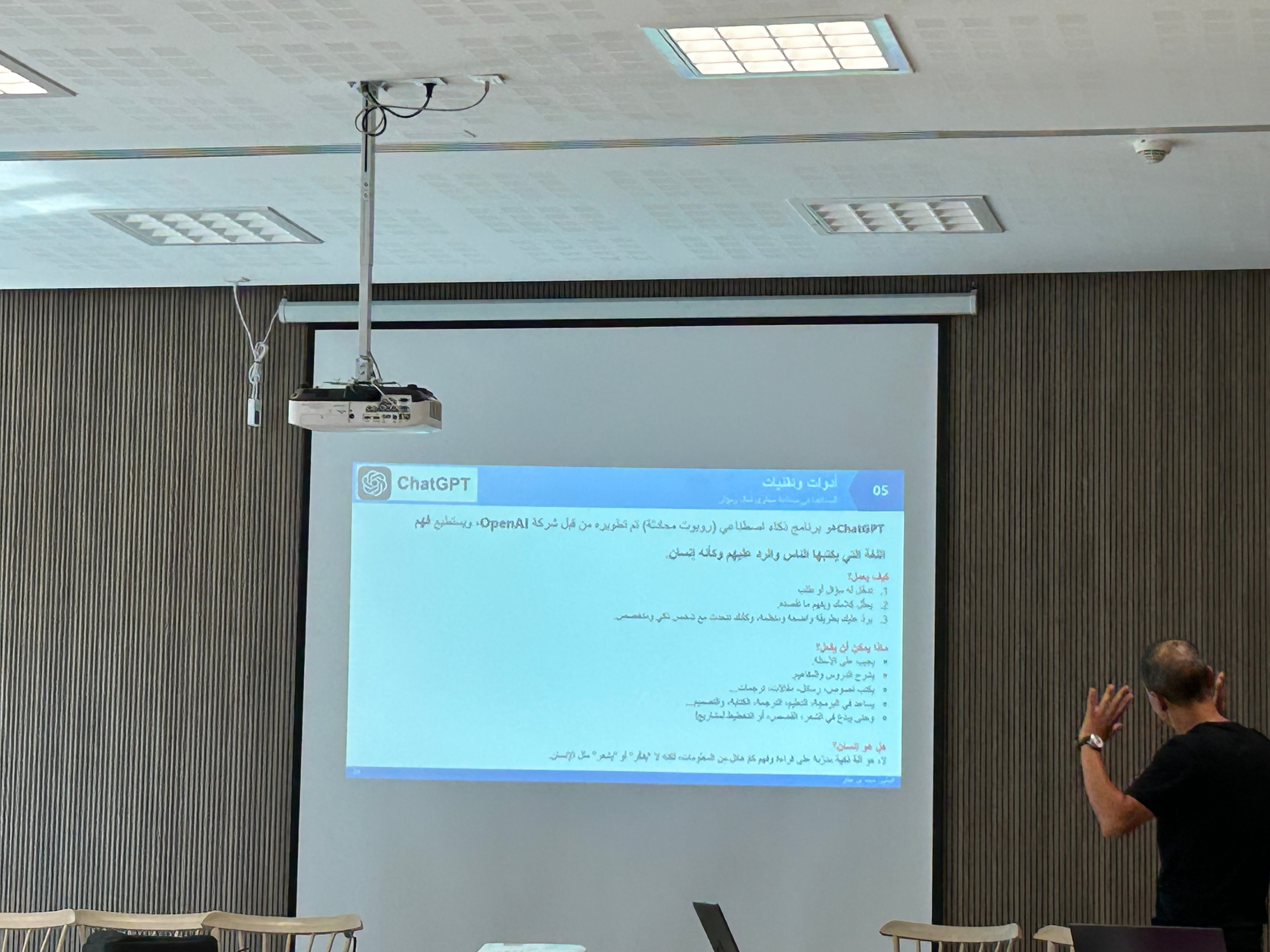
Thursday was a more calm day without scheduled programming, so I continued to work on an ongoing project to map the UGTT’s international collaborations and partnerships. They have so many!!! It is super awesome and inspiring to see a union that has international cooperation and global partnerships baked into its very core. On Wednesday, I spent a while when I couldn’t really stomach the technology conference outside of the event room, looking at the old photographs of Ahmed Tlili, who served as Secretary-General of the UGTT from 1956 to 1963. Along with some of the other founding members of the union, he supported the National Liberation Front in Algeria that fought for Algerian independence from French colonization, as well as many other liberation movements across the African continent. He also helped with the organized resistance movement of Palestinians in response to the first Nakba of 1948, where Zionist forces and settlers expelled 750,000 Palestinians from their homes.
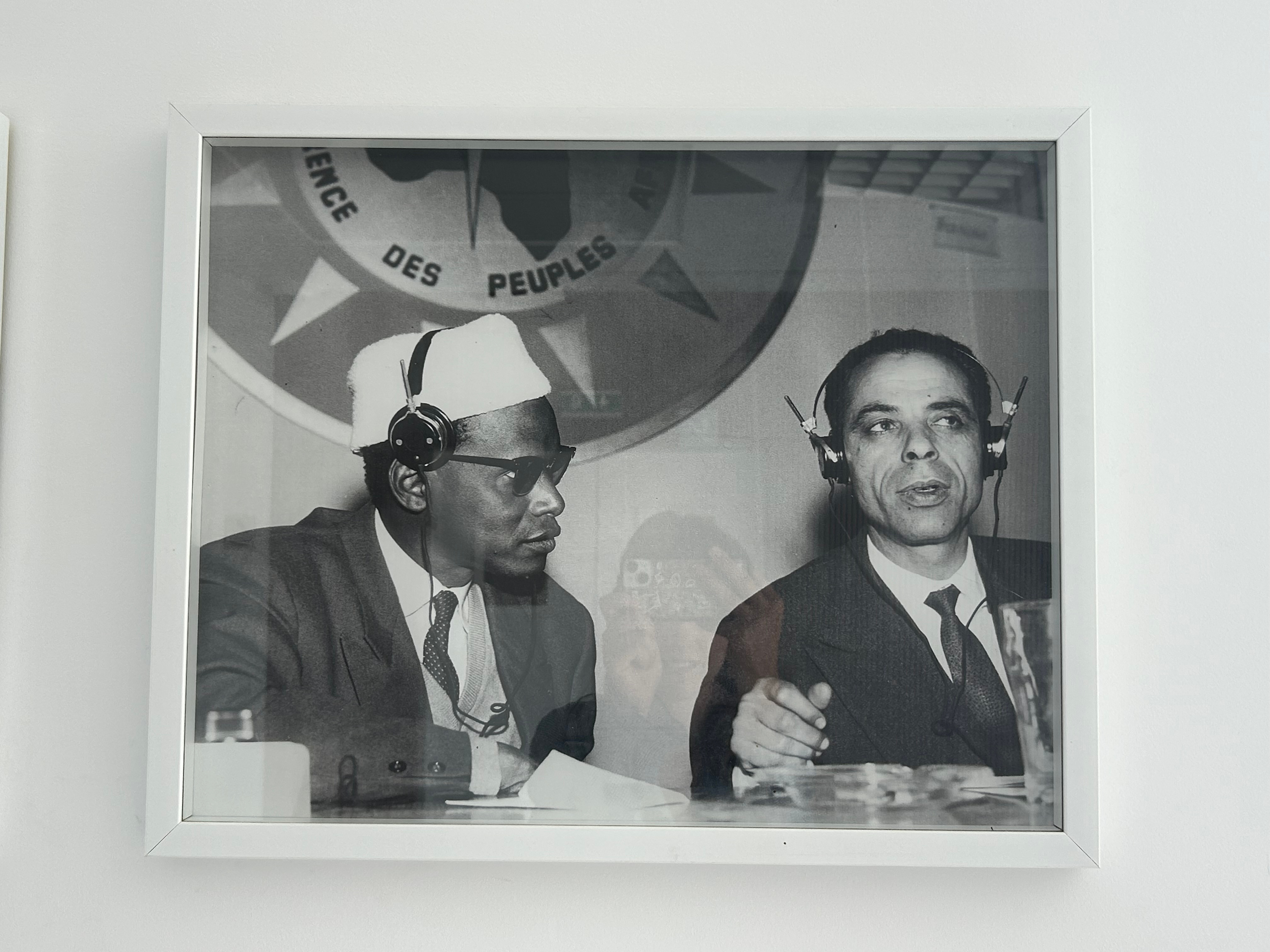
One last note: the UGTT along with three other organizations who helped in the democratic peace-making process in Tunisia after the 2011 Revolution, won the Nobel Peace Prize in 2015. This week, they nominated Francesca Albanese, UN Special Rapporteur for the Occupied Palestinian Territories, for the Nobel Peace Prize. It makes me so happy to be at an organization that fights against the fascism of the United States, which imposed sanctions on Albanese for her work in opposing the genocide in Gaza and in exposing the financial ties that many international companies have in the Israeli apartheid state. I wrote about the ways that Amazon and Google provide financial support and cloud computing technologies that allow the Israeli Occupation Forces to target and murder Palestinians in my research for Laidlaw last summer, so I have endless respect for Albanese and her exposition of the ways that international companies, especially American billionaires, provide the economy of genocide.
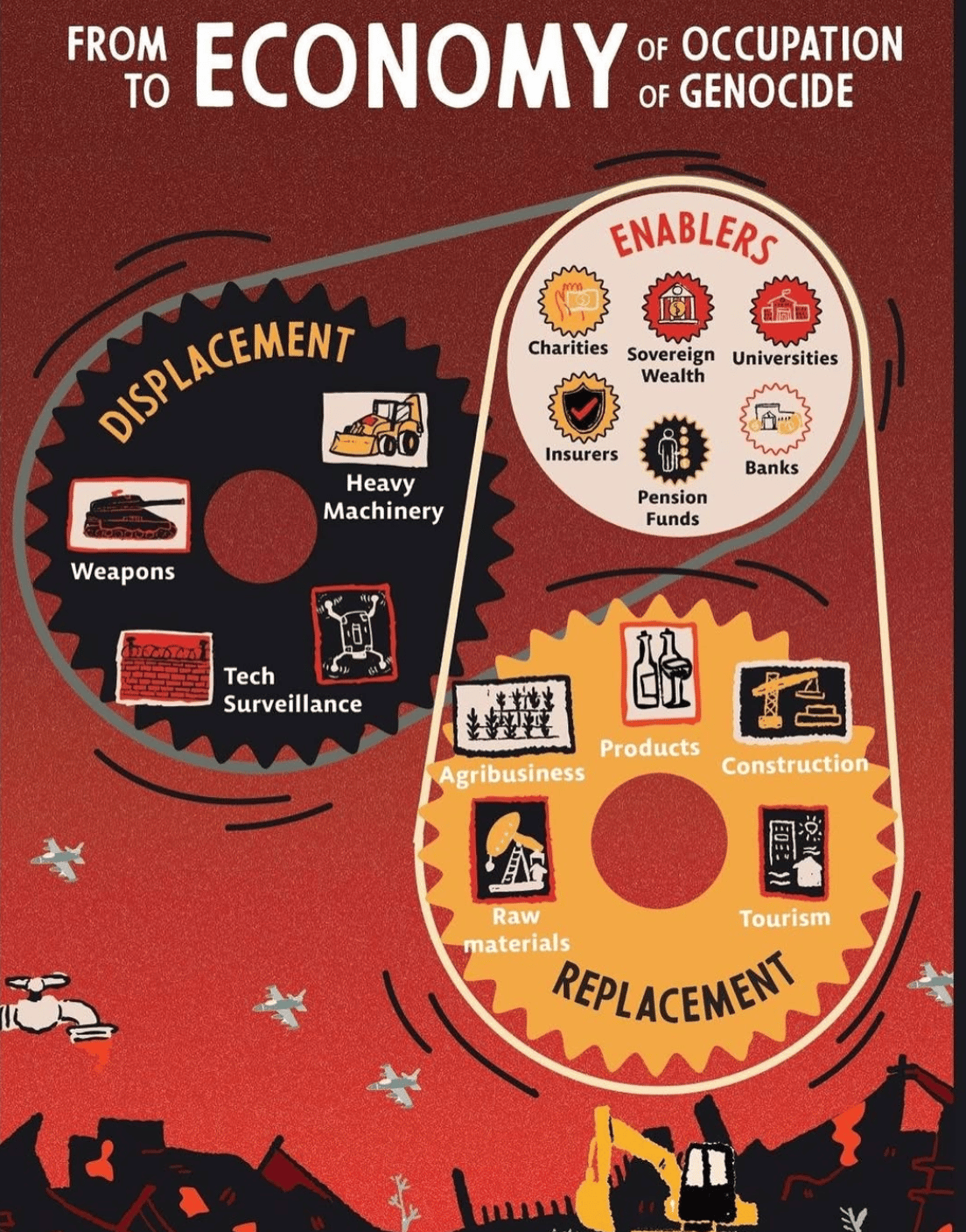





Please sign in
If you are a registered user on Laidlaw Scholars Network, please sign in